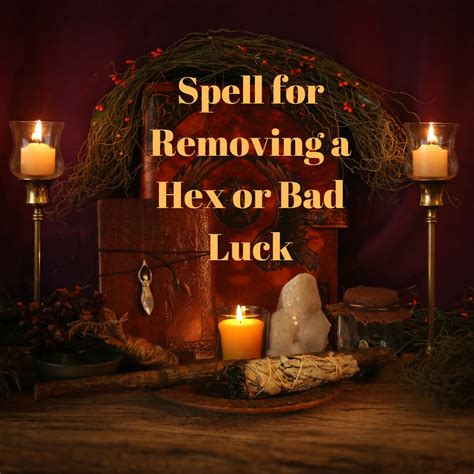Is That Bad Luck, Or a Hex? Unraveling the Mysteries of Misfortune
We've all experienced periods of bad luck. A string of unfortunate events can leave us feeling frustrated, helpless, and even questioning whether something more sinister is at play. Is it simply a run of misfortune, or could it be something more… supernatural? The question of whether bad luck is truly a hex is a fascinating exploration of belief, psychology, and the enduring power of superstition.
This article delves into the nuances of misfortune, examining the psychological explanations for perceived bad luck, exploring cultural beliefs surrounding hexes and curses, and offering practical ways to navigate challenging times.
What Constitutes a "Hex"?
Before we can determine if our misfortunes are hexed, we need to define what a hex actually is. A hex, in its simplest form, is a deliberate attempt to inflict harm or misfortune on another person through supernatural means. This can manifest in various ways, depending on cultural beliefs and practices. In some cultures, hexes involve rituals, spells, or the use of specific objects imbued with negative energy. In others, a hex might be simply a malicious wish or curse directed towards someone. The key distinction lies in the intentionality of the negative event. Mere bad luck is random; a hex is actively inflicted.
Is My Bad Luck Actually a Hex? Identifying Potential Signs
While it's difficult to definitively prove a hex, certain patterns or accompanying circumstances might lead some to suspect foul play. These are often subjective and based on personal belief systems, but some common considerations include:
- Sudden and Unexplained Misfortune: A cluster of seemingly unrelated negative events occurring in a short period can feel unsettling.
- Intense Negative Feelings: A persistent feeling of being targeted, watched, or cursed can accompany suspected hexes.
- Specific and Targeted Misfortune: If the bad luck seems focused on a particular area of your life (e.g., consistently failing relationships, recurring financial problems), it might raise suspicion.
- Symbolic Occurrences: Some believe specific events or objects might symbolize a hex, though these interpretations are highly personal and culturally influenced.
Psychological Explanations for "Bad Luck"
Before jumping to supernatural conclusions, it's crucial to consider psychological factors that can contribute to a perception of bad luck. The availability heuristic, for instance, makes us more likely to remember and focus on negative events, leading to an overestimation of their frequency. Confirmation bias might cause us to selectively notice and interpret events that confirm our suspicions of a hex, while ignoring contradictory evidence. Stress and anxiety can also amplify negative experiences, making them seem more significant than they actually are.
How to Cope With Misfortune (Whether Hexed or Not)
Regardless of the underlying cause, navigating difficult periods requires a proactive approach:
- Self-Care: Prioritize physical and mental well-being through exercise, healthy eating, sufficient sleep, and stress-reducing activities.
- Seeking Support: Talking to friends, family, or a therapist can provide emotional support and perspective.
- Problem-Solving: Instead of focusing on the negative, identify specific problems and brainstorm solutions.
- Reframing Negativity: Try to view setbacks as learning opportunities and focus on personal growth.
- Seeking Professional Help: If the negative experiences are overwhelming or persistent, consider seeking professional help from a therapist or counselor.
Cultural Beliefs and Hex-Breaking Rituals
Many cultures have rich traditions surrounding curses and hexes, and methods for breaking them. These practices often involve rituals, prayers, or the consultation of spiritual leaders. It's important to remember that these practices are rooted in belief systems and should be approached with respect and understanding, even if you don't personally share them.
The Power of Belief and the Placebo Effect
The power of belief is a significant factor in both experiencing and overcoming perceived bad luck or hexes. The placebo effect demonstrates how our beliefs can influence our physical and mental state. A strong belief in a hex can exacerbate negative experiences, while a belief in protective measures or positive outcomes can lead to a more resilient and optimistic outlook.
Conclusion: Distinguishing Between Bad Luck and a Hex
Determining whether your misfortunes are simply bad luck or a deliberate hex is a personal and complex question. While there's no scientific proof of hexes, understanding the psychological factors involved and exploring cultural beliefs can provide valuable context and coping mechanisms. Ultimately, focusing on self-care, problem-solving, and fostering a positive mindset is crucial for navigating any challenging period, regardless of its perceived cause. Remember, even if you believe in the possibility of hexes, taking proactive steps to improve your life is always the most effective approach.

